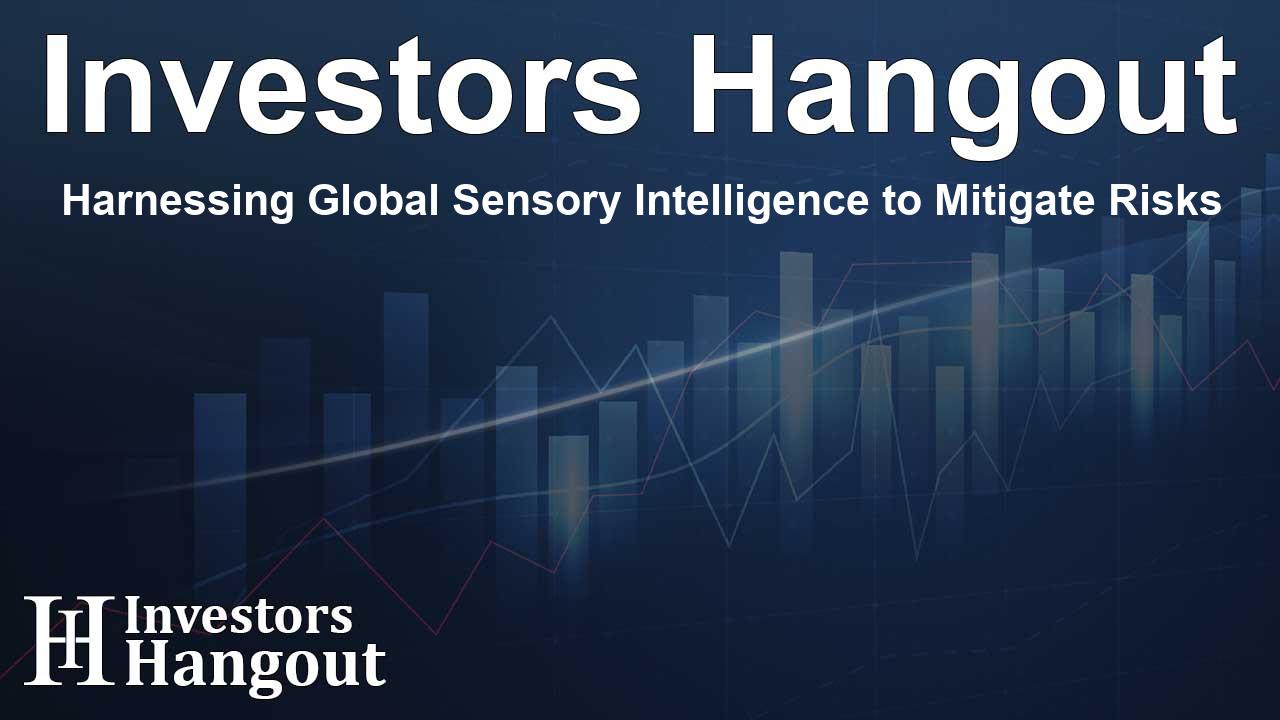Harnessing Global Sensory Intelligence to Mitigate Risks

Introducing Global Sensory Intelligence for Enhanced Observations
Synchronized Global Observation of Atmospheric, Terrestrial, and Oceanic Conditions, and Human Activity and Artificial Systems
Jumptuit is excited to unveil its innovative Global Sensory Intelligence (GSI) system. This groundbreaking technology facilitates the simultaneous monitoring of atmospheric, terrestrial, and oceanic conditions, along with human activities and advanced artificial systems. GSI synchronizes millions of real-time data points dispersed across the globe, enabling the early detection of potential events through unbiased observation of interrelated variables.
The Scope and Reach of GSI
With GSI, organizations can expand their observational capabilities to cover a vast area, encompassing approximately 510M km², which translates to roughly 197M mi². This extensive reach allows for heightened awareness of the Electromagnetic Spectrum (EMS), from infrasonic to ultrasonic waves and infrared to ultraviolet light. Such comprehensive monitoring is critical, especially considering that the world’s oceans encompass over 70% of the planet's surface area and harbor around 90% of the biosphere.
The Importance of Ocean Monitoring
The oceans not only support a rich biosphere but also facilitate 90% of global goods traded. They are projected to be a significant source of critical minerals and rare earth elements that are vital for the global clean energy movement. Thus, effectively observing maritime geopolitical tensions and oceanic conditions becomes imperative to safeguard commercial shipping routes and global supply chains.
Challenges in Geopolitical and Environmental Contexts
As the demand for deep-sea mining exploration intensifies, competition for critical minerals and rare earths heightens amidst geopolitical instability and environmental degradation. The Genesis J2T tool developed by Jumptuit plays a vital role in tracking the interconnections among various factors that signify potential geopolitical and environmental occurrences in international waters.
Understanding Maritime Jurisdictions
Genesis J2T offers assessments regarding potential conflicts among nations concerning jurisdictional rights to natural resources, which can include fishing zones, subsea oil and gas, critical minerals, and renewable energy sources. These rights are often a source of contention, particularly concerning defined and undefined maritime borders and ocean boundary delineations such as Territorial Seas, Contiguous Zones, Exclusive Economic Zones (EEZ), Continental Shelves, and High Seas.
Real-Time Observations: A Strategic Advantage
In discussions led by Jumptuit’s CEO, Donald Leka, it becomes evident that the new dynamics in oceanic geopolitics are reminiscent of historical territorial struggles. Current events, such as the presence of multiple fishing vessels in contested zones or strategic maritime placements by nations, emphasize the critical need for advanced observational techniques. Factors including atmospheric, terrestrial, oceanic conditions, along with regulatory and military considerations can profoundly affect maritime safety and resource management.
Looking Towards the Future
As the landscape of global competition among nations evolves, effective monitoring of these variables will become indispensable for businesses, governments, and organizations alike. Jumptuit is committed to leveraging GSI to enhance perceptibility and foresight, providing actionable insights to navigate through this complex environment. This initiative will enable a more strategic approach toward oceanic resource management and geopolitical stability.
Frequently Asked Questions
What is Global Sensory Intelligence (GSI)?
Global Sensory Intelligence (GSI) is Jumptuit's system for simultaneous observation of various atmospheric, terrestrial, and oceanic conditions, along with human and artificial activities, facilitating enhanced situational awareness.
How does GSI improve monitoring capabilities?
GSI synchronizes millions of data endpoints worldwide, enabling organizations to detect probable events through unbiased and comprehensive sensor analyses.
Why is ocean monitoring important?
With oceans covering over 70% of the Earth's surface and supporting critical supply chains, monitoring oceanic conditions is essential for safeguarding global trade and managing natural resources.
What challenges exist in maritime jurisdictions?
Competing claims among nations over maritime resources, influenced by undefined borders and territorial disputes, pose significant geopolitical challenges that require careful management and monitoring.
What role does Jumptuit play in global resource management?
Jumptuit utilizes its GSI technology to provide essential insights and risk assessments regarding geopolitical tensions and environmental events, aiding in better decision-making in resource management.
About Investors Hangout
Investors Hangout is a leading online stock forum for financial discussion and learning, offering a wide range of free tools and resources. It draws in traders of all levels, who exchange market knowledge, investigate trading tactics, and keep an eye on industry developments in real time. Featuring financial articles, stock message boards, quotes, charts, company profiles, and live news updates. Through cooperative learning and a wealth of informational resources, it helps users from novices creating their first portfolios to experts honing their techniques. Join Investors Hangout today: https://investorshangout.com/
Disclaimer: The content of this article is solely for general informational purposes only; it does not represent legal, financial, or investment advice. Investors Hangout does not offer financial advice; the author is not a licensed financial advisor. Consult a qualified advisor before making any financial or investment decisions based on this article. The author's interpretation of publicly available data shapes the opinions presented here; as a result, they should not be taken as advice to purchase, sell, or hold any securities mentioned or any other investments. The author does not guarantee the accuracy, completeness, or timeliness of any material, providing it "as is." Information and market conditions may change; past performance is not indicative of future outcomes. If any of the material offered here is inaccurate, please contact us for corrections.